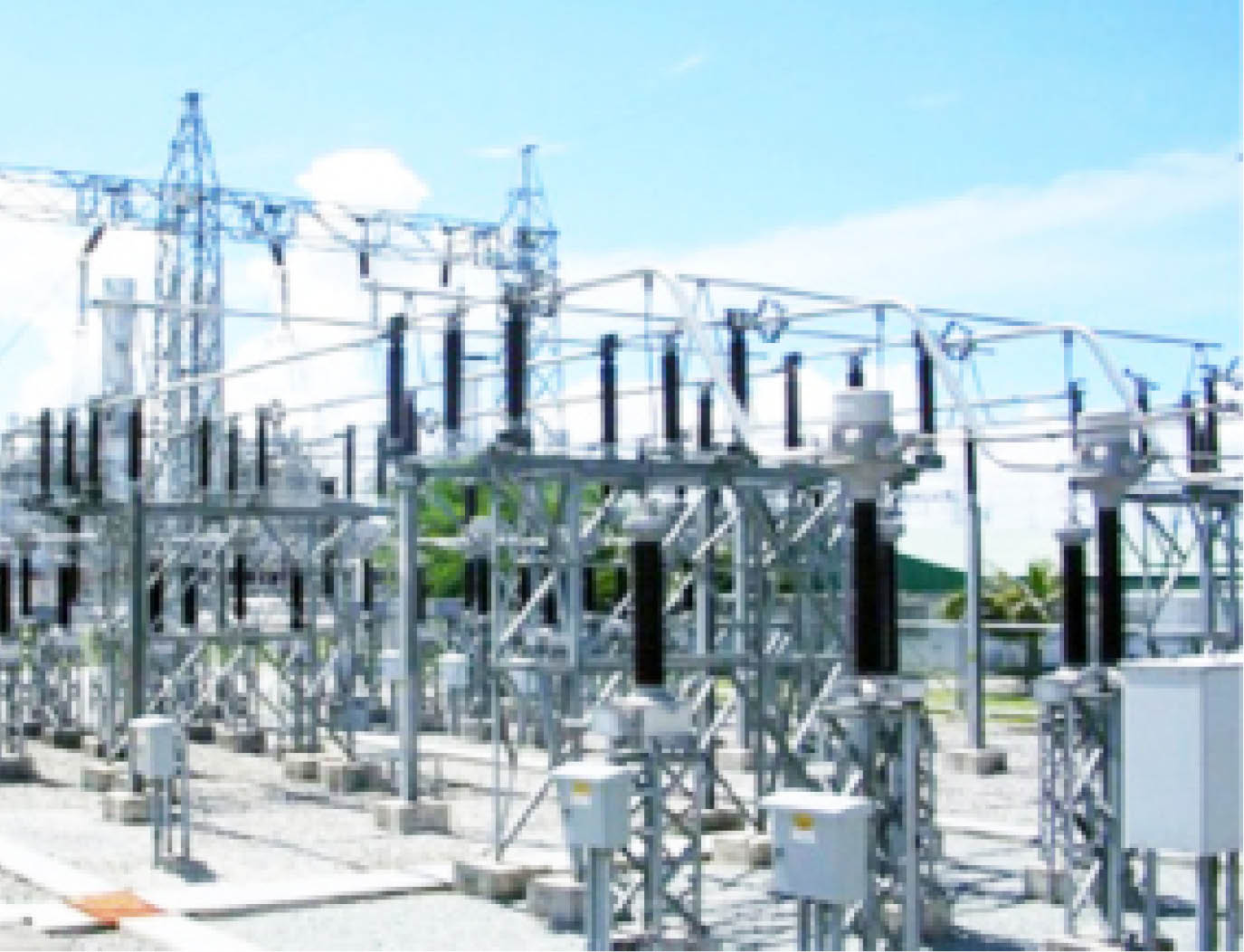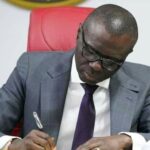Within 16 months, the 11 Distribution Companies (DisCos) in Nigeria lost the capacity to pay N484.993 billion of the N1.084 trillion invoices they received for the electricity they received from the power Generation Companies (GenCos) between January 2021 and April 2022.
This development further confirms the concerns of experts about the ailing state of Nigeria’s power sector, which faces a liquidity crisis, resulting in poor supply to consumers.
- How I managed UniPetrol – Alhaji Yusuf Garba Ali
- How pregnancy, breastfeeding and motherhood affect Nigerian media mothers
Daily Trust on Sunday’s analysis of the latest data on payment receipts in the Nigerian Electricity Market (NEM) from the Nigerian Bulk Electricity Trading Plc (NBET) shows that almost all the DisCos are crisis-ridden. The crisis has become obvious among six DisCos in the last eight months, prompting the takeover of Abuja DisCos by the United Bank for Africa (UBA) over loan default in November 2021.
There was a similar case with Fidelity Bank concerning Benin, Kaduna, and Kano DisCos in July 2022, as well as Ibadan DisCo and Assets Management Corporation of Nigeria (AMCON), on behalf of the defunct Skye Bank. And the Port Harcourt DisCo had its key management officials and board replaced this month to avoid collapse.

How N485bn debt drags electricity market
The 11 DisCos got a N1.08trn energy invoice in 16 months, and on a business basis, they were expected to settle that invoice 100 per cent. However, they paid N599.4bn, representing 55 per cent of the entire sum, and left a 45 per cent debt of N484.9bn.
According to a breakdown of the payment on a month-by-month basis, the DisCos got a higher energy bill in the May 2021 billing cycle at N71.98bn, but the highest payment they made into the electricity market during the period was N40.2bn in October 2021. While they got the least energy invoice of N62.3bn in September 2021, the DisCos’ lowest remittance was N31.1bn recorded in August 2021.
DisCos’ woes and failed benchmark
In attempting to address the liquidity issues with the DisCos, the Nigerian Electricity Regulatory Commission (NERC) in 2021, introduced the Minimum Remittance Order (MRO).
The MRO stipulates an amount each of the DisCos must remit every month from payments received from the over 10 million registered consumers to settle the invoice for energy purchase from the generation companies (GenCos). On average, NERC compelled the DisCos to about 75 per cent of every monthly invoice of electricity supply they get from GenCos as against the 35% or lower they were paying as of 2020.
Even at this, this paper’s analysis of the payment data revealed that the DisCos could not meet the government’s threshold of N813.781bn or 75 per cent minimal remittance for the N1.084trn energy they got from January 2021 to April 2022.
The 11 DisCos fell short of N214.3bn debt called the Market Shortfall (MS) assuming they complied with the figure (N813bn) NERC compelled them to pay during period through the order but they only remitted N599bn.
At the drag-pace payment from the DisCos, the MRO figure (N813bn) was N270.6bn short of the total energy invoice of N1.084tr, further severing the cash flow cycle and leaving it as a huge Tariff Shortfall (TS) which is a gap that could be filled in subsequent tariff reviews.
Explaining this further, the NBET payment note states thus: “It is the portion of the invoice which is currently catered for by the Federal Government of Nigeria (FGN) through various instruments implemented by the NBET until a time where the market becomes fully competitive and a cost reflective tariff is adopted.”
In summary, the N270.6bn tariff shortfall and the N214.3bn market shortfall make up the entire N484.9bn debt profile of the 11 DisCos in the 16 months period under review.
The highest of this entire debt profile of N35.6bn was recorded in January 2022 when the DisCos received N72.3bn energy debt and managed to clear N36.6bn of it, just a little over 50 per cent.

New policy to the rescue?
The NERC, on July 1, 2022, activated a new electricity market regime based on contractual obligations to ensure about 5,300 megawatts (MW) of electricity daily supply, while sanctioning operators for default.
Although the target has not been met, at least five DisCos have had their board and management reshuffled, based on insolvency and underperformance, which are moves to sanitise the industry, according to experts.
The UBA had in December taken control of the Abuja DisCo over default in the 2013 privatisation acquisition loan repayment. In the latest action, Fidelity Bank announced the takeover of Kaduna, Benin, Kano DisCos. Also, the government (NERC and BPE) said it had reset Ibadan DisCo after its takeover by AMCON and also restructured Port Harcourt DisCo to halt its crash.
According to an implementation report on the new contract-based system of the NERC, the average electricity assurance should be 5,000 megawatts hour (MWH). On the basis of this, there is none of the 11 DisCos that should have at least 70 per cent of their grid allocation every day, which is a guarantee to increase the power supply of the over 10million registered electricity consumers in Nigeria.
But an official of the NERC told our reporter that the 5,000MWH/H may not be achieved immediately because the hydropower companies were expecting an increase in water level from August when they would ramp up generation.
He said, however, that the NERC was working with the CBN to draw from an emergency electricity stabilisation fund, which will boost the DisCos’ revenue capacity to pay for monthly energy bills.
“The GenCos will now have more funds coming to them to increase gas supply to their power plants and improve energy generation for the TCN to transmit,” the NERC official noted.
An analysis of grid data indicates that the grid is on a gradual recovery from the abysmal state it was a month ago after the major system collapse. From 3,000MW peak generation on July 1, the grid grew gradually to 4,102MW on July 8 before a slight decline to 3,992MW on July 9. As at July 14, the peak generation was 4,115MW while baseline generation was at 3,770MW, nearing the 4,000MW baseline generation projected in the new dispensation with a 5,350MW daily peak generation.
Debt trend must end to improve services – Experts
Experts and power sector analysts have called on the authorities for stiffer reforms to ensure the energy debt accumulation stops by getting better managers to operate the DisCos and improve electricity supply services to Nigerians.
According to the convener of the Nigerian Power Consumers Forum (NPCF), Mr Michael Okoh, since the intervention of the CBN by escrowing the DisCos’ accounts, their managers may have devised a way of under-declaring remittances.
He said they paid the sum assumed they allegedly collected every month from consumers into the CBN fund, from which the apex bank allows them to pay salaries and other expenses before they can now pay for the bulk energy supplied to them by the GenCos through the NBET.
“If the NERC is strict with the contract-based electricity market, DisCos must be held responsible to pay the energy bills they get, and get sanctioned if they fail; and they must give supply to consumers,” Okoh insisted.
On his part, Prof Yemi Oke, a power sector expert, was worried that more among the 11 DisCos have a crisis other than the five that have been so treated in the recent shakeup.
“Eighty per cent of the DisCos are technically insolvent; hence the problems of the power sector may continue. We will continue to experience an average of five to six national grid or system collapses per annum,” Oke noted.
The president of the Nigerian Consumer Protection Network (NCPN), Kunle Olubiyo, said electricity consumers applauded the action taken by the NERC and BPE, but blamed the authorities for not doing a major review, five years into the power sector privatisation.
“In the prevailing circumstances, we are on the same page with relevant stakeholders in the present efforts to clean up the mess and free the economy held by its jugular by non-performing utilities,” Olubiyo stated.
This story was produced under Dataphyte’s 2022 Media Fellowship.

 Join Daily Trust WhatsApp Community For Quick Access To News and Happenings Around You.
Join Daily Trust WhatsApp Community For Quick Access To News and Happenings Around You.


